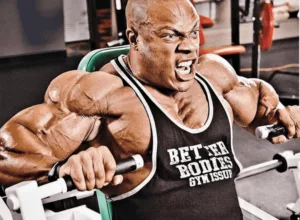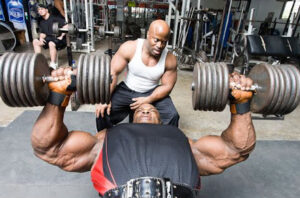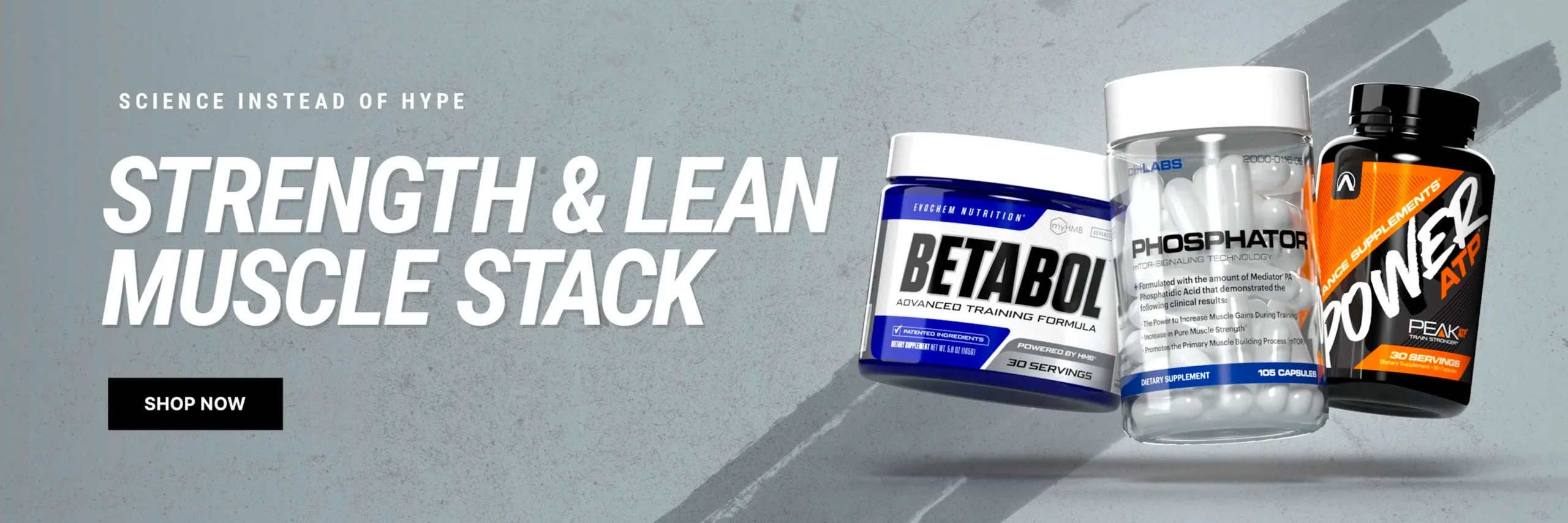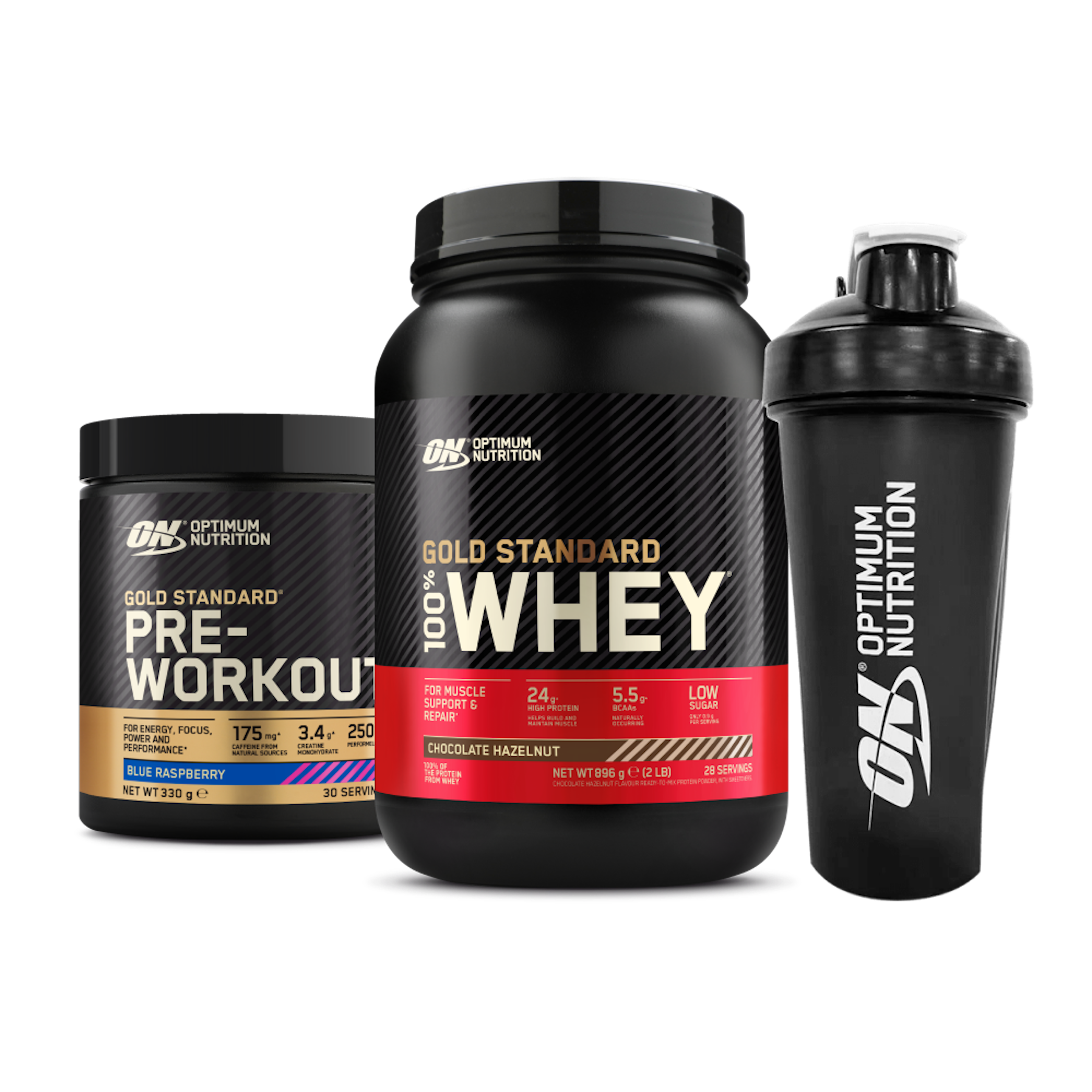Should you use light or heavy weights if you want to build muscle and strength? Perhaps moderate weights trump them both? For years or even decades, the question of strength training load has been contested. Many studies and scientific articles examine the subject, not to mention the heated discussions in gyms between proponents of one approach or the other.
A new review and meta-analysis weigh in with the latest, and perhaps the most significant, research update. In this article, we analyze the analysis and see how the current scientific winds blow. Science isn’t static. New findings and new angles of approach merit further studies and expand our knowledge.
The new meta-analysis on the topic is likely the most comprehensive one yet. Also, it examines some parameters in a fresh light. In other words, it’s time to dive head-first into the training-load pool once again.
Light Weights or Heavy Weights? What About Moderate Weights?
“Engaging in strength training offers tremendous positive effects. Not only do you strengthen your body and your muscles, allowing you to lift impressive poundages and build bulging biceps“. In addition, your health makes serious gains as well, and you lay the foundation for keeping age-related issues at bay.
You have many tools at your disposal for manipulating the results of your efforts in the gym. Some of these include your training volume, your training frequency, and last but not least, your training intensity.
When you hear “training intensity,” you might get the mental picture of keeping your set rest to a minimum and working out at a rapid pace. However, that’s not what high intensity means in this context. Instead, high-intensity strength training means using heavy weights. The closer to your one-repetition maximum, or 1RM, you lift, the higher your training intensity.
Related Articles: Research Study: “When And When Not to Lift Light Weights vs Heavy Weights” – According To Certified Strength Coach
“Your muscles grow bigger and stronger independent of load, as long as you train to or close to failure. That’s pretty well-established. However, the optimal approach to strength-training intensity for strength and hypertrophy is still an unknown entity”.
If your goal is to get stronger, training heavy is more effective than using light weights. That is because you recruit most, if not all, the motor units in the working muscles right off the bat. So even though doing many reps with a lighter weight is at least as tiring, there is little doubt that using a heavier weight makes you gain more strength.
As for building muscle, science doesn’t offer nearly as clear-cut an answer. The “repetition continuum” theory suggests that using heavy weights and low reps is the strength zone. Performing many reps with light weights is the muscle endurance zone. Therefore, using moderate weights with a moderate number of reps is the hypertrophy zone.
Recent research challenges that classic model. “We now know that many other factors than motor unit recruitment play essential roles for muscle growth. Regardless of which mechanisms affect hypertrophy, most current studies can’t find any difference in muscle growth depending on your training load. Heavy, moderate, or light weights lead to similar muscle mass gains as long as you reach failure”.
Related Articles: Science Reveals “One Major Side Effect” Of Lifting Heavier Weights
Check Out Our List Of The Best Supplements For Building Muscle, Shredding Muscle, Recovery, And Great Health, and Wellness Products! Purchase ifbnewsfeed.org‘s apparels Here: ifbnewsfeed.org

 The Science Behind Light vs Heavy Weights For Muscle Growth
The Science Behind Light vs Heavy Weights For Muscle Growth
Taking into consideration numeral studies published in the past, you should know which one is best for muscle growth.
Fitness trainer and Kinesiology graduate Bigflex Dogg has weighed upon the debate of light v heavy weights for muscle growth.
As it is accustomed to people who follow his YouTube videos, Bigflex Dogg has personal experience inside the gym, but he also interviews experts and relies heavily on studies to back his arguments. The latter is what he used extensively to talk about light vs heavy weights for muscle growth.
“A common belief in the bodybuilding community assumes that muscle growth happens when you lift heavier weights for a small number of reps. If you do the opposite, lighter weights for moderate to a high number of reps, you are most likely training your muscles for endurance, not a growth”. Correct?
Related Articles: The Benefits Of Weightlifting: Lifting Weights A Few Times A Week “Might Help Us” Stave Off Obesity
According to science, no. The first study that came to that conclusion was published in 2012 where 18 men had similar quads growth when half of them did heavy weights and lower reps compared to the lighter weights and higher reps.
After some criticism regarding the athlete’s pool, another study was conducted and the same results came back: “Light vs heavy weights for muscle growth are similar”.
“Light weights and heavy weights lead to similar muscle growth when the volume is equated for and sets are taken close to failure,” Bigflex Dogg quotes from the study’s findings.
Does this mean you should only train with lighter weights or heavy weights? No. The last part of that quote is extremely important to understand why.
Training to failure in a high rep range (with lighter weights) is more uncomfortable than doing with heavier weights and a lower rep range due to the increased metabolic stress. The athletes who underwent the high rep low weight study eventually threw up during the workout.
Light Weights vs Heavy Weights for Muscle Growth
What’s Best For Muscle Growth?
So, in the end, light vs heavy weights for muscle growth? Which one is best? Unfortunately, as one could assume, relying heavily on only one way of training will have shortcomings.
“Heavy loads are more beneficial to strength gains and mechanical tensions and are easier to take close to failure,” Bigflex Dogg says. In this case, use heavier loads with fewer reps on compound movements.
Lighter weights, the ones that give you a pump, also provide a “potent hypertrophic stimulus” that is similar to heavy compound lifting. So use higher reps and lower weights in your accessory exercises after sets on compound movements are done.
The best way to force muscle growth is to apply progressive overload. However, progressive overload is not based only on adding more weight to your training.
Related Articles:
- The Science Explains The Difference Between “Light Weights vs Heavy Weights” When It Comes To Muscle Growth
- Building Muscle Doesn’t Require “Lifting Heavy Weights”. It Requires “To pump Iron” Until You Reach Muscle Fatigue

- Hormone Replacement Therapy regimen For Men and women
- Hormone Blood Testing for Men (Bodybuilder Blood Testing)
- Shop Optimum Nutrition Energy: Anytime & Pre-Workout
For More News And Daily Updates, Follow IFBNewsfeed.Org on Facebook, Twitter, and Instagram. Comment, Like, And Share With Everyone Who May Need To Be Updated With The Most Recent Fitness/Bodybuilding/Powerlifting And CrossFit News.







